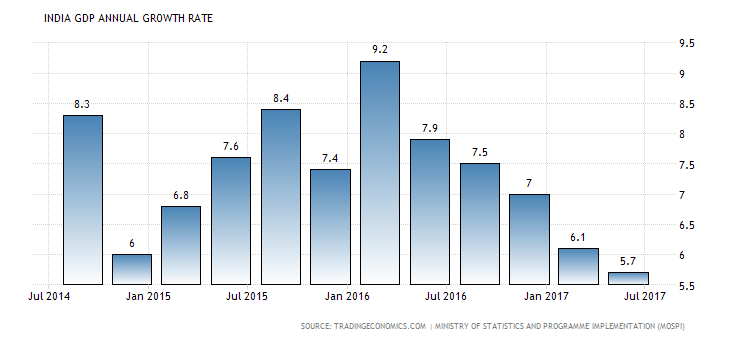Gross Domestic Product, commonly known as GDP, is the estimated value of goods and services produced in a particular time frame (may be quarterly or yearly) for a country or region. GDP has great impact on nearly everyone within an economic system.
GDP components are includes Private Consumption, Investment, Government Expenditure and Net Exports. GDP forecasts are generally used by economists, researchers, financial analysts, market intelligence firms, VC firms, and government office. There are different methods to calculate GDP as follows;
- GDP calculated by expenditure method
- GDP calculated by Income Approach
- GDP calculated by production approach
Nominal GDP is the economic output of a region without the adjustment of the inflation. In most of the case, nominal GDP is higher than real GDP. Most of the time, nominal GDP is used to compae different quarters of output within the same year.
Real GDP is the economic output of the country adjusted towards inflation. Real GDP is generally used to compare the GDP of country or region over two or more years. Real GDP is expressed to base year prices. Real GDP is considered as true indicator of the economy since it factors the price changes, currency fluctuations, production etc. among other factors.
Economic Impacts of GDP
GDP has been considered as one of the important metrics used to measure economic activities of a country. In simple term, when you produce goods or service you are compensated, and GDP increases by the amount of that compensation. Poor GDP growth means less production of goods and services with lesser employment opportunities.
Conversely, higher GDP growth reflects a healthy economy with low unemployment and wage increases, as businesses demand labor to meet the growing economy. India had witnessed the higher GDP growth in the recent past, and this had resulted in higher consumption, more jobs etc. and was experienced in most part of the country.
Generally, investment occurs in countries where economic growth is strong which lays the foundation of further growth in future. Higher GDP growth results in increasing investors from FII, and leads to increase in exports which will have an impact on infrastructure, jobs and associated metrics. GDP has impact on currency value as well. When country releases its GDP data, its currency can appreciate or depreciate as a result of it. Higher GDP will strengthen the currency of a county.
When GDP growth is low, it leads to recession which has impact on earning potential of people, decreasing wages among others. Soon the GDP slows down, or is negative; it can lead to fears of a recession which means layoffs and unemployment, and declining business revenues and consumer spending. For example, if there is a drop in demand for software exports, the immediate effect is retrenchment impacting ordinary employees. This will have cascading effect on consumption pattern with lesser movement of consumer goods, lower real estate transactions, and sluggish look in all associated sectors.
Thus, the higher growth rate of GDP is important not only for the economic health of a country but also for the economic health of the common man either directly or indirectly.



